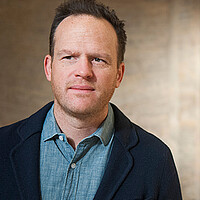SXSW floods Austin with ideas, celebs – and cash
Loading...
They came and went like a swarm of migratory birds. Tens of thousands of people – techies, musicians, fans, filmmakers, academics, politicians, policy wonks, venture capitalists, journalists, hipsters, and a few celebrities – swept through Austin, Texas, over 10 days in March for this year’s South By Southwest (SXSW) festival.
In the process, they transformed a city otherwise known for barbecue, live music, and liberal Texans into a mishmash of Silicon Valley; Las Vegas; Brooklyn, N.Y.; and the Mall of America. Big tech firms such as Yahoo, Google, Spotify, and Samsung were there, throwing parties with pop stars, velvet ropes, and plenty of freebies.
The gathering that began 28 years ago as a modest music festival has ballooned into one of the biggest gatherings on emerging tech, film, comedy, and educational enterprises. It’s been a launching pad for such tech brands as Twitter and Foursquare, and today hundreds of entrepreneurs travel there in hopes of finding success. This year’s buzz-worthy application was Meerkat, which lets users stream live video to the Web.
SXSW also carved out space for thoughtful discussion and big ideas. Princess Reema Bint Bandar Al-Saud of Saudi Arabia spoke about empowering Middle Eastern women, MIT roboticist Cynthia Breazeal demonstrated how to humanize technology, and Google chairman Eric Schmidt contemplated the origin of innovation.
As SXSW has transformed from an industry event into a global happening, it’s become a major economic engine for Austin. Over the past five years, SXSW has injected more than $1 billion into the city’s economy. Even the pedicab economy was booming with the typical ride (a few blocks) costing $20 per person. Austin residents cashed in, too, with downtown apartments easily fetching $1,000 a night via Airbnb – the breakout SXSW app just four years ago.








